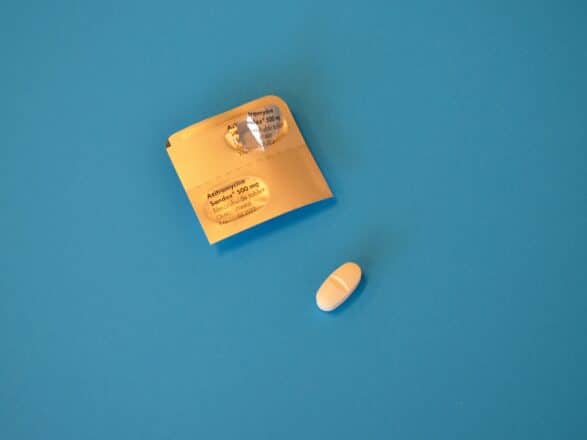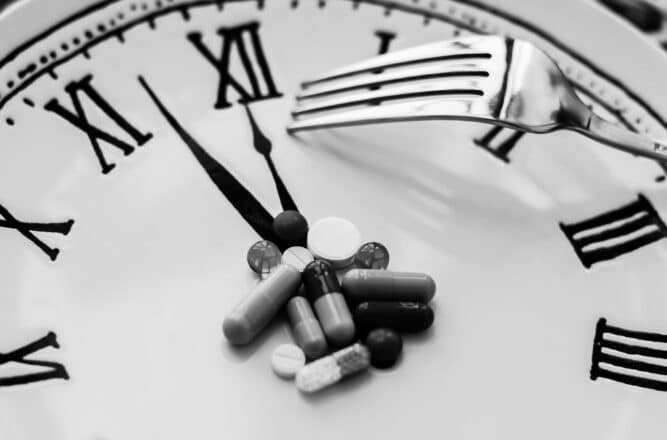Ensuring that seniors reliably take their prescriptions is a critical issue that many families face. In the article, “Advanced Tactics to Remember to Take Medications” brought to you by Clare Absher RN, BSN, you will find an in-depth discussion on how to help the elderly get organized when it comes to medication management. With her professional experience as a home health nurse, she shares practical organizational tactics and reliable tips to enhance medication compliance among seniors. From keeping the medications in a highly visible place to hiring a home health aide, the article provides extensive measures that can be adapted for varying needs and conditions of seniors. It’s not just about organizing medications, but also ensuring that your loved ones remember and take them correctly, which ultimately enhances their health and well-being.
Placement for High Visibility
Creating a medication routine for a senior often starts with setting up a system in plain sight. This is because we often remember to do tasks when we see them.
Keeping medications in sight
It is essential to place medication in a highly visible spot to help seniors remember to take them. Always avoiding storing the tablets in obscure locations like drawers or cabinets where they are often overlooked. The “out of sight, out of sight” principle holds!
Selecting daily routines location for medicine
For the medication to be consumed during the morning, one could place it either on the kitchen table or next to a coffee pot. You can place these medicines in the bathroom, next to a toothbrush to make it a part of the morning routine.
Choosing locations for evening medications
Choose a noticeable location for evening medications, too. A nightstand is an excellent location for keeping night medicines handy. Keeping them beside a toothbrush could also be an effective technique for ensuring the evening dose is not missed.
Linking Medications with Daily Activities
One trick to help seniors remember to take their medications is by associating those medications with daily activities.
Identifying daily activities for association
Linking tasks like tooth brushing, having meals, or getting dressed with medication intake can be very effective. By associating daily activities with medicine, memory is stimulated and medication compliance encouraged.
Easy daily routine activities for triggering memory
Choosing simple day-to-day activities will help trigger memory and provide a reminder to take medications. These activities might include things like eating breakfast or brushing teeth in the morning or turning off the bedroom lights at night.
Promote medication compliance through activity linking
Attaching the action of taking medicine to common daily activities consistently can promote better compliance. This way, the activity serves as a physical reminder that medication needs to be taken.
List Making of Medications
Another useful mechanism for remembering to take medications is making a list.
Recording over the counter medications and dietary supplements
You should make a list of all medications a senior takes, including over-the-counter drugs and dietary supplements such as vitamins. Knowing what medications a senior is taking and when they need to take them can help prevent errors.
Recording accurate dosage and frequencies of intake
On this list, clearly note the dosages and frequencies of each medicine. Ensure the list is correctly updated and captures all medicines consumed by the senior.
Keeping the list in plain sight in a highly visible living area
Put this list in a highly visible area to help the senior remember when and what medication they should take. Ideal locations might include the refrigerator, the front door, or next to the television.
Using an Automatic Pill Dispenser
Automatic pill dispensers can be an effective way to help seniors manage their medications.
Understanding different types of automatic pill dispensers
These devices can be set to dispense the right pills at the prescribed times and can emit beeping sounds to alert the seniors that it’s time to take their medicines. They come in different types and can be locked to avoid double-dosing, making them practical for patients with dementia.
Practical for dementia patients
These dispensers can have visual aids like flashing lights for people with hearing issues, or they can send out emergency calls to family when medication times are missed.
Using automatic pill dispensers for memory, vision or hearing impairment
If your loved ones have memory, vision, or hearing impairment, utilizing an automatic pill dispenser can be the perfect solution.

Using Technology for Medications Reminders
There are several devices and apps which can be handy for helping seniors with medication reminders.
List of available applications for medication reminders
Numerous apps available on smartphones or tablets can remind seniors when it’s time for their medicine. They are truly handy for tech-savvy seniors who simply require a prompt to take their pills.
Ensuring device with reminder is always handy
These reminders could work efficiently provided seniors keep their devices within reach throughout the day.
Effectiveness of technology-based reminders
Technology-based reminders often come with the added benefit of offering a way to track when medications were taken to ensure no doses are missed.
Using Traditional Methods for Medication Reminders
Simpler mechanisms like an alarm clock or timer can be very effective in helping seniors remember to take their medications.
Using alarm clocks or timers for medicine reminders
Timers or alarm clocks can be set at specific times when medicines need to be consumed.
Responsibility of setting and checking reminders regularly
However, this method needs someone responsible to set alarms regularly and ensure that they are heeded.
Pitfalls in using traditional methods for medication reminders
The method’s effectiveness relies heavily on seniors’ responsiveness to alarms. Thus, it might not work for everyone effectively.

Hiring a Professional Caregiver for Medication Reminder
A professional helper could be hired to remind seniors to take their medications during the day.
Role of a certified nurse aide or home health aide in medication management
This person could be a certified nurse’s aide or a home health aide who can monitor and report any medication problems.
Monitoring medication problems by caregivers
The caregiver can be authorized to handle prescription refills for the elders.
Handling prescription refills
The caregiver can track which medications are running low and need to be refilled, reducing the risk of a senior running out of necessary medications.
Organizing Medications for Easier Access
Making sure that medications are easy to access can go a long way in helping seniors remember to take them.
Using prefilled medication cups in designated locations
One technique is to use pre-filled individual medication cups or small containers placed in different locations such as the kitchen counter, bedside, or in the bathroom.
Clearly labeling each container
Label each container clearly, designating the day and time to take the pills within. To prevent spillage, secure the container tops with tin foil or cling film.
Preventing spillage by closing containers securely
Ensuring containers are correctly closed after every use will prevent spillage and maintain medication efficacy.
Documenting Medication Intake
To keep track of which medications have been taken, create a reporting system.
Using a calendar or a binder to record medication intake
A calendar or binder can be used to document when medications are taken daily. You could create a chart of medications and times, marking an “X” when each dose is taken.
Marking off medication doses taken
Cross-through or check off the multiple doses throughout the day to keep track of medication intake.
Separating daily and as-needed medications
Separate the daily medicines from “as-needed” ones to prevent any confusion. Put “as-needed” medications in individual bins or baskets.
Transporting and Traveling with Medication
When traveling, seniors need to remember to also take their medications with them.
Using designated containers for traveling with medication
A designated container should be assigned for traveling with medication.
Preferences in type of travel medication containers
This container could be a sturdy metal lunchbox, a plastic tackle box, or even a cosmetic bag.
Keeping medicine safe and accessible while traveling
Regardless of the type of container chosen, the priority is to ensure that the medicine is safe, easily accessible, and won’t be forgotten during travel.
Making sure seniors can remember to take their medications, whether they are at home or traveling, isn’t always easy. Still, with a right mix of organization, technology, and friendly reminders, it is entirely possible to keep seniors on track with their medications.

